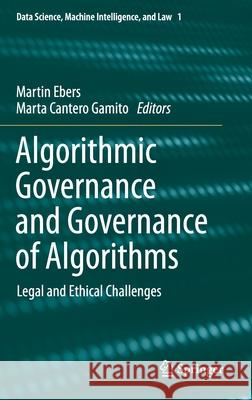Algorithmic Governance and Governance of Algorithms: Legal and Ethical Challenges » książka
topmenu
Algorithmic Governance and Governance of Algorithms: Legal and Ethical Challenges
ISBN-13: 9783030505585 / Angielski / Twarda / 2020 / 167 str.
Algorithmic Governance and Governance of Algorithms: Legal and Ethical Challenges
ISBN-13: 9783030505585 / Angielski / Twarda / 2020 / 167 str.
cena 602,40
(netto: 573,71 VAT: 5%)
Najniższa cena z 30 dni: 578,30
(netto: 573,71 VAT: 5%)
Najniższa cena z 30 dni: 578,30
Termin realizacji zamówienia:
ok. 16-18 dni roboczych.
ok. 16-18 dni roboczych.
Darmowa dostawa!
Kategorie:
Kategorie BISAC:
Wydawca:
Springer
Seria wydawnicza:
Język:
Angielski
ISBN-13:
9783030505585
Rok wydania:
2020
Wydanie:
2021
Numer serii:
001124857
Ilość stron:
167
Waga:
0.43 kg
Wymiary:
23.39 x 15.6 x 1.12
Oprawa:
Twarda
Wolumenów:
01
Dodatkowe informacje:
Wydanie ilustrowane











